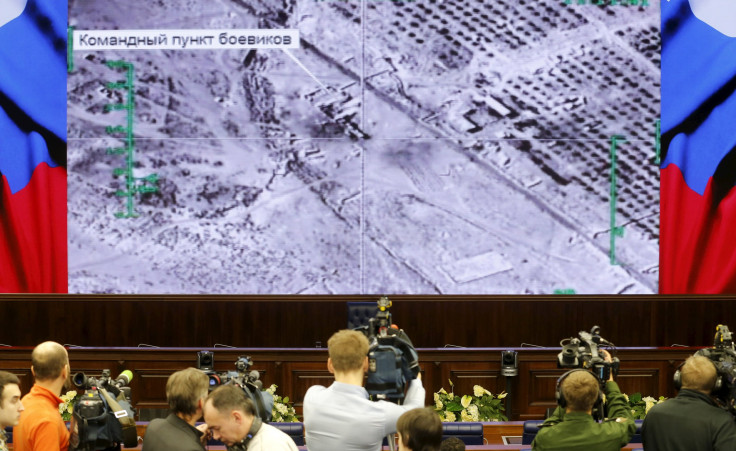Russia, Taliban Target ISIS As Moscow Gathers Intelligence From Afghanistan Group

Russian military officials said Friday they are working with the Taliban to gain information on the Islamic State group in Syria and are willing to share the intelligence with other countries operating in the region. The cooperation between Moscow and the Afghan Taliban involves only intelligence-sharing regarding the fight against ISIS, Russian Foreign Ministry spokeswoman Maria Zakharova said at a news conference, according to CNN.
A senior Russian officer in Syria said Moscow would be willing to share the Taliban information with other countries that are also bombing ISIS, but expects reciprocity. The Taliban contribution would include information on its fighters that have defected to ISIS.
"We are ready to provide to our partners the coordinates of ISIL [Islamic State of Iraq and the Levant] facilities and expect similar information from them on infrastructure of terrorist organizations," Lt. Gen. Sergey Rudskoy, chief of the main operational directorate of the General Staff, told the Russian news service Tass.
Russia, Taliban share intelligence in fight against #ISIS https://t.co/j7nb407aOF pic.twitter.com/EBEX3ZXJjA
— CNN (@CNN) December 25, 2015
Russia began bombing raids in Syria against the Islamic state terror group and other Syrian rebels in late September, operating independently of the U.S.-led coalition. British and French forces also joined the bombing campaign after the Nov. 13 Paris attacks. Germany offered noncombatant assets involving surveillance and training.
Some Taliban leaders are veterans of the guerrilla war against the Soviet Union's invasion of Afghanistan in the 1980s. But it seems those old grievances may have been set aside in the face of the new threat from ISIS, which has been recruiting from Muslim areas of southern Russia.
"The ties between ISIS and the insurgency in the North Caucasus, the fact that there are people from the North Caucasus fighting in Syria — maybe not as many as the Russian government says, but certainly a good number, including in leadership roles — means that Russia does see ISIS and a lot of the other Islamist groups as a particular threat, in a way that maybe the Taliban isn't," Olga Oliker of the Center for Strategic and International Studies in Washington told CNN. "So the Russians may think they are the lesser of the available evils."
© Copyright IBTimes 2025. All rights reserved.






















